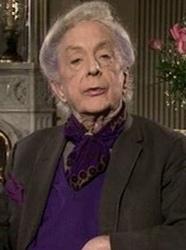As you now know, the Queen of England addresses the nation on the afternoon of Christmas Day. And she tells them what has happened and she invites them to be part of the history of England, and to be proud of being English and to go on. Then a Mr. Michael Jones came from England to America and said, “Will you make a speech?” And I said, “Ye-e-e-e-s-s-s-s.” And I was worried about it, but when I had on the table the script which I could read, I told them how to be happy. And in the last bit, Mr. Jones said, “Have you one final speech, one final message to deliver the English?” And I said, “Yes, I have. Tell them to pack tonight and to leave tomorrow, like Portuguese explorers of old, for the islands of the blessed. We are waiting for you.” Here is what I told the English that night:
As Mr Dickens would have said, 1993 has been the best of times and it has been the worst of times. A reginal theme has permeated my year. I have had, as some of you may know, the novel experience of appearing as a Queen of England in a film adaptation of Mrs Wolf's novel Orlando. The film connects the many moments of English history with what, I believe, is called gender bending.
Having worn reginal gowns, I begin to understand why Queen Elizabeth the first was not always in the best of moods. She was much troubled by relatives and in-laws, often Scottish. Many of whom she axed from life, and even more seriously from the social register.
Continuing my honest masquerade, I appear thus to address the entire British nation on Christmas day. I am, of course, in mufti. But departing from tradition, I will not speak mainly of myself, Britain, or the strangely misnamed commonwealth. Instead, I will speak of America. I do this because America is the land where I think, despite its faults, is where the best of you should be.
Mr. Bush, still president in early 1993, being an elder statesman wanted everything to stay the same, the same as it had been in the Hollywood sunshine of Mr. Reagan’s day. Now Mr. and Mrs. Clinton have entered the White House, and by political standards they are a young couple.
They watched many episodes of Sesame Street, and they wish for change. For one thing, they want to transform America into a welfare state. They want everyone however poor, however foreign, however idle, to be eligible for health care. The trouble with this grand notion is that it will cost money. A lot of it!
Americans believe in money. The dollar is not just a currency, it is a passion. This being so, it is difficult to find out how they lost so much of it, especially as they did not have Mr. Lamont to guide them.
In the early Sixties, when the Kennedy’s reigned from the brittle splendor of their fireproof castle in Camelot, almost every country in the world owed money to the United States. In thirty years, this situation has allowed to become reversed.
Just as the country in general is falling part, so is New York in particular. Viewed from a distance it looms up as a magnificent citadel of steel and glass. The Emerald City come to life. But when you live in it, it turns out to be a wreck. If you take a swift taxi drive down Fifth Avenue, your head hits the roof of the taxi cab several times. If Audrey Hepburn, today, wanted to enjoy breakfast at Tiffany’s, she would not choose to arrive at that Mecca of diamonds by taxi cab.
In the early Sixties, not only all the money but also all the power in the world was in the hands of the United States. They could have bombed everybody, so that there was only America or ashes. There would have been no more trouble, no more anti-Americanism. The bombing hasn't been done, because American politicians were afraid of what the neighbors would say. They want to rule the world and be loved. It can't be done.
What made Mrs., I beg your pardon, Lady Thatcher so great was that she didn't give a damn whether anybody loved her or not. That was how she became the greatest political star since Mr Churchill. Like that great figure, she wept only for herself.
Now America is not in a sufficiently secure position to bomb the world, so it has decided to save it, which may prove to be just as expensive, and will certainly take much longer.
Adding to the violence of life in general, women have now decided to become people. This is a change for the worst. Women were nicer than people. If our cities are to be populated entirely by people, life will become faster, louder, harsher. The loudness is already here. No one seems to mind.
The American young are violent because they have no inner life; they have no inner life because they have no thoughts; they have no thoughts because they know no words; and they know no words because they never converse. They would not be heard above the din that rocks the dim cellars where they gibber and twitch.
They have one word a year which means “I don't like this” and another which says “I do like this”. One season you can be bad, another you can be neat, and yet another you can be cool. When you ask the young in what sense their little friends are cool, they say nothing. They cannot embellish their judgment.
Now, all our heroes are either sports men whose profession obliges them to charge one another like buffalos until their injuries compel them to retire; or movie stars who pretend to hit, kick or shoot one another or to blow up entire cities.
Though I regret all this, it does not in any way lessen my love for America. So far, I have only once been threatened in the streets of Manhattan, whereas in England I never felt safe for a moment. Indeed, it is my impression that everybody in the United States
is a friend. In England, nobody is a friend.
I left England lonely streets over ten years ago. Here there are no nice people from Tumbridge Wells eager to chill what is left of my marrow with iceberg stares. There are no royal appointments and disappointments. This city instantly embraced me, and I it. I became a naked film critic and, dream of dreams, almost, almost a celebrity.
I have also come to believe wholeheartedly in Mrs. Lazarus’ verse inscribed on the base of the Statue of Liberty. If ever there was a huddled mass, it has to be me. Everyone can see at a glance what a huddled mass I am. No one draws attention to the fact. Indeed, on occasion, I am permitted to appear in the guise of a VIP.
Recently I attended a secret screening of a movie called Zelda. After the film, the entire audience went to the Algonquin Hotel. There I managed to be photographed with Mr. Fairbanks, and later with Miss Warrick. Neither of these two luminaries had the faintest idea who I am, but neither refused for a moment to raise me to their rarefied level of royal visibility.
This is only one sign of American generosity. They are a truly openhanded people, free with their time, their money and their availability. My advice to the British is pack tonight, set out tomorrow like the Portuguese explorers of old for the land of the blessed. We are waiting for you.
(In 1993, Channel 4 presented a very distinctive alternative to the queen's speech—a heartfelt Christmas message from New York's famous British émigré Quentin Crisp. This text is from that film, which was shot in New York City's famous Plaza Hotel and was the first Alternative Queen's Message to be broadcast—and most historic! It is available to be viewed in the UK only here.)



